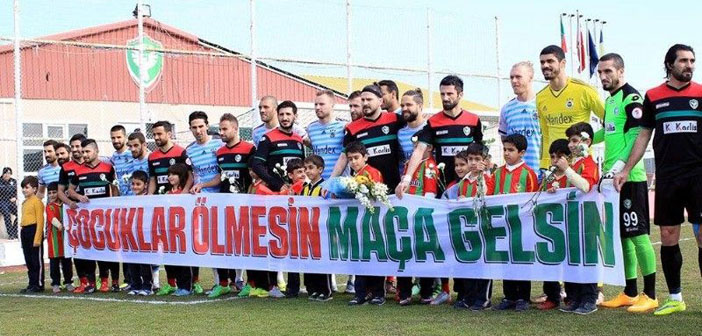Diyarbakır’da umut ve umutsuzluk: ‘Kalbimizi söküp aldılar’


(DİYARBAKIR) Haber nöbeti için bir grup gazeteci olarak Diyarbakır’dayız. İlk grup gazeteci geçen hafta gelmiş, görevlerini gayet güzel yaparak geri dönmüşlerdi. Biz ikinci grup oluyoruz. Ekipte Evrensel Gazetesi Genel Yayın Yönetmeni Fatih Polat, Cumhuriyet’ten Pınar Öğünç, Sol haber portalından Mesut Bayram, serbest gazeteci Tuğba Tekerek, gazeteci yazar Fehim Işık, Birgün’den Zeynep Yüncüler ve Bianet’ten Elif Akgül var. Bizden sonra da bu iş sürecek, her salı Batı’dan bir grup gazeteci buraya gelip hem meslektaşlarıyla dayanışmaya çalışacak, hem de buradan haber geçecek. Evet, belki olağanüstü haberler yapmayacağız ama buranın sesini Batı’ya bir nebze olsun duyurabilsek, büyük iş. Çünkü apaçık ortada ki, çatışmalı sürecin devam ettiği illerden haber almak artık çok güç – birkaç sebeple. Öncelikle, savaş konseptine geçer geçmez medya üzerindeki baskısını artıran iktidar buralardan sadece devletin istediği türden haberler geçilmesini istiyor. Dayak ve gazete binalarının basılması gibi bir hücumla karşı karşıya kalan medya ise bu konuda direnme yoluna gitmedi. Zaten bunu beklemek de gerçekçi değildi. Hal böyle olunca, iş burada zor koşullarda görev yapan gazetecilere düştü. Çoğu, şiddet ve gözaltı uygulamaları altında iş yapmaya çalışıyor. Ancak bir meselemiz daha var; Onların sesleri de Batı’da pek duyulmuyor. Yani aslında çetrefilli bir durumla karşı karşıyayız. Tamam, haber yapılmasında sıkıntı var ama gelen habere ne kadar istekli, meraklı Batı, o da pek belli değil.
Hal böyle olunca, yangına su taşıyan karınca meselindeki gibi yollara düştük. Maksat şu gidişatın kırılmasında bir payımız olabilecekse olsun, buranın sesini ‘oraya’ duyurabilmek için bir çabamız olsun. (Yazı Diyarbakır’da yazıldığı için bu örnekte ‘orası’ Batı oluyor.)
Jetler altında maç
Uçaktan iner inmez ilk istikamet Amed-Fenerbahçe maçı. Bizim hafta böyle tarihi bir maça denk gelince kaçırmak olmaz düşüncesi hâkim. Hem Amed haksız bir cezaya çarptırılarak seyircisiz oynamak zorunda kalmış, hem de Amed’in as oyuncusu Deniz Naki yine ‘siyasi’ sebeplerle 12 maç oynamama cezası almış. Basın tribününde yerimizi almadan önce futbolculara çiçek vermek için gelen çocuklar gözüme çarpıyor. Günler sonra güzel bir şey görmek iyi geliyor. Bizim oturduğumuz yerin yan tarafında devasa bir pankart var, taraftarların resimlerinin basılı olduğu. Yani, buradalar aslında. Maç sırasında dışarıda birikip tezahürat yapacaklarını biliyoruz. Ve ikinci güzel şey: Takımlar sahaya ‘Çocuklar ölmesin, maça da gelebilsin’ pankartıyla çıkıyor. Fenerbahçe’nin de pankartın arkasında yer alması önemli. Not ediyoruz.
Ve başlama düdüğü. Ama bir dakika... Amed, federasyonun kararını protesto etmek amacıyla, 30 saniye kadar topa dokunmadan, öylece duruyor. Fenerbahçeliler de centilmenlik gösterip topu kendi aralarında dolaştırıyorlar. Ne derler, notlarımız arasına katıyoruz. Bizim için bir başka olağanüstü durum ise, maçı üzerimizden geçen savaş uçaklarının gümbürtüsü eşliğinde izlemek. Neyse, maç faslını kısa keseceğim, ama Amed’in ikinci ve üçüncü gollerinde, bulunduğumuz tribünün hali görülmeye değerdi. Amed çok açık ki bu karanlık günlerde Diyarbakırlılara umut ve direnç aşılayan bir ruh olmuş. İyi de oynuyorlar doğrusu, buraya kadar gelmelerinin bir tesadüf olmadığını gösterdiler. Sonuçta eski sisteme göre 3. Lig, yeni sisteme göre ise bir 2. Lig takımından bahsediyoruz. Ancak 3-3 olduktan sonra kendimizi maça vermekte zorlandık, çünkü dışarıdaki taraftara atılan gaz fişeklerini stadın içinde görebilmek mümkündü.
Sonrası
Sonrası, Diyarbakır’ın dertleriyle hemhal olmaya çalışmak. Diyarbakır Barosu’nu ziyaretimiz ve Baro Başkan Vekili Ahmet Özmen’in sokağa çıkma yasaklarının bu şekilde uygulanmasının Anayasa’ya nasıl aykırı olduğunu sakin bir ses tonuyla, tane tane anlatması. Ve Tahir Elçi cinayetinde elde hâlâ bir zanlı olmadığı gibi, soruşturmada da yol alınamadığını, sıkıntılı bir ruh hali içinde tarif etmesi. Yeri gelmişken, Elçi cinayetiyle ilgili en kritik görüntüler, polislerin ateş açtığı hizanın tam karşısında yer alan dönerci dükkânının kamera görüntüleri. Ancak savcılık bu görüntülerin eski bir sistemle kaydedildiğini ve imajının alınmadığını söylemekteymiş. Yani izleyememişler. Özmen “Aslında bu davada savcılıkla aynı taraftayız, yani müdahiliz ama soruşturma bu halde işte” diyor.
Bulak’ın cenazesi
Çıktığımızda bir kötü haber daha. Bağlar semtinde, Cizre için protesto gösterisi yapılırken orada bulunan Mahmut Bulak, görgü tanıklarının anlattığına göre bir polis kurşunuyla hayatını kaybetmiş. 16 yaşındaymış.
Ertesi gün cenaze törenindeyiz. Nöbet boyunca muhabir olarak ‘atandığım’ İMC TV ekibiyle birlikte Yeniköy mezarlığındayız. Öfkeli ama aslında suskun bir kalabalık var. Cenazenin kabristana doğru yola çıkmasıyla, yaklaşık bin kişilik bir kortej oluşuyor. Gençlerin sloganlarına, yaşlıların ağırbaşlı ama hızlı adımlarla yürüyüşü eşlik ediyor. Bulak’ın naaşı, ailesinin ağıtları, çığlıkları, “Êdî bese” (yeter artık) haykırışları arasında toprağa veriliyor. Kortejde, babasının, Mahmut’un fotoğrafına bakarak, hıçkırıklar içinde “Bakma bana öyle” diye katılması hâlâ aklımda. Bulak, yakın zamanda öldürülen bir başka 16 yaşındaki gencin yanına gömülüyor. Zaten kabristanda biraz etrafınıza baktığınızda o kadar çok 1996, 1995 doğumlu gencin mezarını görüyorsunuz ki...
Suriçi tedirgin
Kabristandan sonra istikamet, Suriçi’nin sokağa çıkma yasağı olmayan mahalleleri. Eski halden, sıkı bir kontrol altında, Melik Ahmet bölgesine giriyoruz. Dükkânlar açık ama sokaklarda o kadar az insan var ki... Arka mahallelerden çatışma sesleri geliyor. Ancak silahların hangi istikamete doğru atıldığını anlamak zor. Buralarda görev yapan gazetecilerin ne yaşadığını anlamaya en çok yaklaştığım an, bu an. Tedirgin bir halde canlı yayın bağlantımızı yapıp geri dönüyoruz. Ki gördüğüm, muhtemelen çok bir şey değil.
Dönüşte esnafla konuşmaya çalışıyoruz biraz. Onlar da tedirgin, haliyle. En zoru da, hiçbir öngörüde bulunamamak. Ne zaman bitecek bu çatışmalı süreç, ya da ne olursa bitecek? Hiçbir tahmin, öngörü, ipucu yok. Diyarbakırlıları en çok yoran da bu zaten. Bir de, kendi kentlerinde nereden çıkacağı belli olmayan bir mermiyle yaralanma ya da ölme ihtimali. Daha birkaç gün önce bir sivilin bu şekilde öldüğünü anlatıyorlar. Suriçi’nin eski, cıvıl cıvıl halini bilenler için gerçekten insanın içini kanatan bir manzaraya tanık olduk. O insan almayan caddeler bomboş, bir tür terk edilmiş bir kent. Bir esnaf durumu şöyle özetliyor: “Sur bizim kalbimizdi, kalbimizi söktüler.”
Bizim Surp Giragos Kilisesi’nin oralara gitmek ise mümkün değil. İki aydır girilemiyor oralara. Kilise Yönetim Kurulu üyeleriyle konuşuyorum. “İki aydır kiliseyi gözümüzle görmüş değiliz” diyorlar. Ancak önemli bir tahribat yokmuş, aldıkları bilgilere göre.
Gazetecilik daha zor
Gazetecilerle konuşuyoruz. Yıllardır çatışmalı bölgelerde görev yapan Faruk Balıkçı, Fehim Işık gibi deneyimli isimler, yaşanan sürecin öncekilerle karşılaştırılmayacağını söylüyorlar. Elbette 90’lar çok zor bir dönemdi fakat hem sivil halkın, hem de gazetecilerin bu kadar hedef altında olması çok yorucu hale gelmiş. Kent artık güvensiz bir yer. Diyarbakır’ı avucunun içi gibi bilenler bile kent içinde tedirgin. Güvenlik güçlerinin ne zaman ne yapacağı öngörülemiyor –bilhassa devlet güdümünde olmayan ya da muhalif basın için. “O benim kameramanım” vakasından hatırlayacağınız Ferat Mehmetoğlu da bu duruma dikkat çekiyor. Gazetecilerin, son zamanlarda kimi protesto gösterilerini biraz daha geriden izlediklerini söylüyor.
Yeri gelmişken, Ferat, kameramanının gözaltına alındığı günün görüntülere yansımayan devamını da anlatıyor. O polis akrebini daha sonra üç kez daha yol üzerinde yakaladığını ve kameramanını kurtarmaya çalıştığını söylüyor. Sonrasında ise Terörle Mücadele Şubesi’nde gece 12’ye kadar süren bir bekleyiş... Tazyikli su ve gaz yemiş, kıyafetleriyle.
Dink’in fotoğrafı
O olayda gözaltına alınan Baran Ok da yanımızda. Dört gün gözaltında kalmış. Akrepte Emniyet’e götürülürken polisin cep telefonundaki Hrant Dink resmini görmesi yüzünden ayrıca ‘nefret söylemi’ne maruz kaldığını söylüyor, kibarca. Daha sonra adlı adınca söylüyor, “Ermeni dölü” dediklerini. Hiç gocunmamış. Zaten Hrant Dink’e ayrı bir ilgisi var. Yazılarından oluşan kitaplarını dikkatle okuyor. Üniversitede de zaten ‘Ahparig”’diye bir gazete çıkarmış. “Onun için atılan dayak hiçtir” diyor. 5 Nisan’da duruşması var. Bir kameraman, bir gazeteci, ama terör örgütü üyeliğinden yargılanacak.
Toparlayalım. ‘Bölge’ zor günler geçiriyor. Ve bu süreçte ‘Batı’yı pek yanında göremiyor. Bu hal hem Kürt illerinde insan hakları ihlallerinin rutinleşmesine ve daha kötüsü umursanmamasına yol açıyor, hem de o hep bahsettiğimiz ‘kopuş’ halinin artık güçlenmesine. Evet, belki konuşurken bir kopuştan bahseden yok ama kimi zaman gözlerde bu ifadeyi görmek mümkün. Mahcup bir ruh haliyle geziyorum her yeri.
Son not: Giderken kafamda bazı soru işaretleri vardı. Orada iki-üç günlüğüne boy gösterip geri dönmek, nasıl desem, halden anlar, işe yarar bir davranış mı diye... Ama gelince ve gösterilen dostluğu görünce, bir kez daha şunu fark ettim ki, gelmek gelmemekten iyi.



